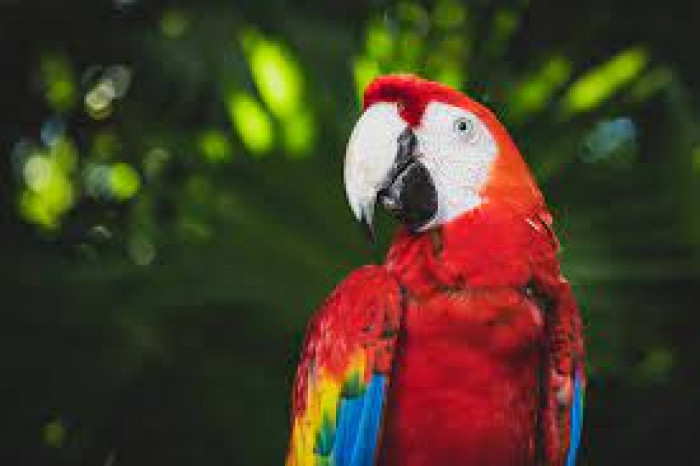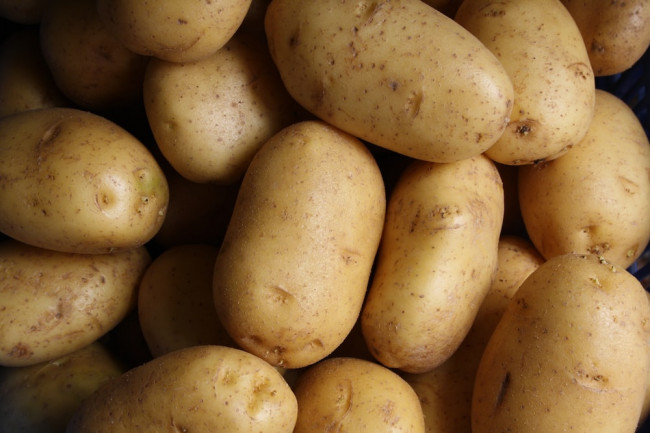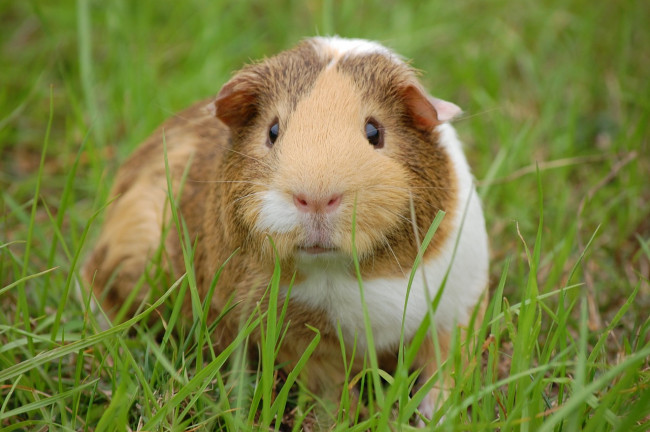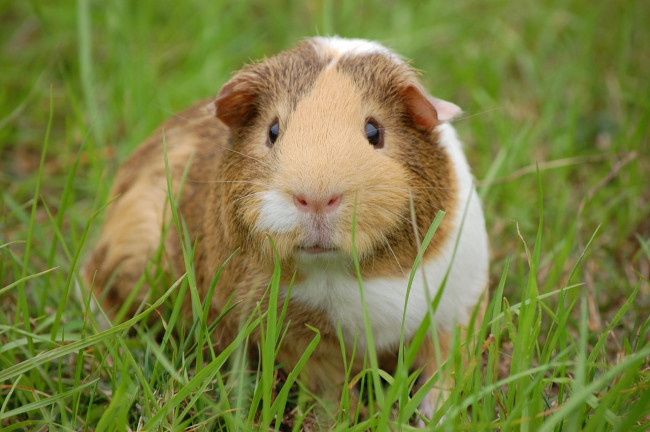Do Rabbits Really Love Carrots? Debunking a Common Myth

Before we address the carrot myth, it's important to understand the nutritional needs of rabbits. Contrary to common belief, rabbits are herbivores and have complex dietary requirements. Their diet mainly consists of high-fiber foods such as hay, grass, and leafy greens. These foods help maintain proper digestive health and prevent issues like obesity and dental problems. A balanced rabbit diet includes a variety of vegetables in addition to hay, but not all vegetables are created equal.
The Carrot Myth:
Carrots are indeed a vegetable, but their role in a rabbit's diet might not be as significant as many believe. While rabbits can eat carrots in moderation, they shouldn't be the primary focus of their diet. Carrots are high in sugar and should be treated more as an occasional treat rather than a daily staple. Feeding rabbits too many carrots can lead to weight gain, digestive upset, and even dental issues due to their natural sugars and low fiber content.
Preference vs. Necessity:
Rabbits' preferences can vary just like any other animal. Some rabbits may show enthusiasm for carrots due to their sweet taste, while others might not be as interested. It's important to note that a rabbit's preference for carrots doesn't necessarily reflect their nutritional needs. Just because rabbits may enjoy the taste of carrots doesn't mean these vegetables are the healthiest option for them.
Balancing the Diet:
To ensure the well-being of your rabbit, it's crucial to provide a well-rounded diet. The primary food source should always be high-quality hay, which provides essential fiber for proper digestion. Leafy greens like kale, spinach, and romaine lettuce can be introduced in controlled amounts. Carrots can be given as occasional treats, but only in small quantities to prevent negative health effects.
Conclusion:
In conclusion, while the image of rabbits munching on carrots is charming, the reality is a bit more nuanced. While rabbits might enjoy the taste of carrots, these vegetables should be treated as occasional indulgences rather than dietary staples. The key to a happy and healthy rabbit lies in a well-balanced diet centered around high-fiber hay and appropriate leafy greens. So, the next time you reach for a carrot to feed your furry friend, remember that moderation is key for their overall well-being.
By understanding and respecting the nutritional needs of our rabbit companionfore we address the carrot myth, it's important to understand the nutritional needs of rabbits. Contrary to common belief, rabbits are herbivores and have complex dietary requirements. Their diet mainly consists of high-fiber foods such as hay, grass, and leafy greens. These foods help maintain proper digestive health and prevent issues like obesity and dental problems. A balanced rabbit diet includes a variety of vegetables in addition to hay, but not all vegetables are created equal.
The Carrot Myth:
Carrots are indeed a vegetable, but their role in a rabbit's diet might not be as significant as many believe. While rabbits can eat carrots in moderation, they shouldn't be the primary focus of their diet. Carrots are high in sugar and should be treated more as an occasional treat rather than a daily staple. Feeding rabbits too many carrots can lead to weight gain, digestive upset, and even dental issues due to their natural sugars and low fiber content.
Preference vs. Necessity:
Rabbits' preferences can vary just like any other animal. Some rabbits may show enthusiasm for carrots due to their sweet taste, while others might not be as interested. It's important to note that a rabbit's preference for carrots doesn't necessarily reflect their nutritional needs. Just because rabbits may enjoy the taste of carrots doesn't mean these vegetables are the healthiest option for them.
Balancing the Diet:
To ensure the well-being of your rabbit, it's crucial to provide a well-rounded diet. The primary food source should always be high-quality hay, which provides essential fiber for proper digestion. Leafy greens like kale, spinach, and romaine lettuce can be introduced in controlled amounts. Carrots can be given as occasional treats, but only in small quantities to prevent negative health effects.
Conclusion:
In conclusion, while the image of rabbits munching on carrots is charming, the reality is a bit more nuanced. While rabbits might enjoy the taste of carrots, these vegetables should be treated as occasional indulgences rather than dietary staples. The key to a happy and healthy rabbit lies in a well-balanced diet centered around high-fiber hay and appropriate leafy greens. So, the next time you reach for a carrot to feed your furry friend, remember that moderation is key for their overall well-being.
By understanding and respecting the nutritional needs of our rabbit companionfore we address the carrot myth, it's important to understand the nutritional needs of rabbits. Contrary to common belief, rabbits are herbivores and have complex dietary requirements. Their diet mainly consists of high-fiber foods such as hay, grass, and leafy greens. These foods help maintain proper digestive health and prevent issues like obesity and dental problems. A balanced rabbit diet includes a variety of vegetables in addition to hay, but not all vegetables are created equal.
The Carrot Myth:
Carrots are indeed a vegetable, but their role in a rabbit's diet might not be as significant as many believe. While rabbits can eat carrots in moderation, they shouldn't be the primary focus of their diet. Carrots are high in sugar and should be treated more as an occasional treat rather than a daily staple. Feeding rabbits too many carrots can lead to weight gain, digestive upset, and even dental issues due to their natural sugars and low fiber content.
Preference vs. Necessity:
Rabbits' preferences can vary just like any other animal. Some rabbits may show enthusiasm for carrots due to their sweet taste, while others might not be as interested. It's important to note that a rabbit's preference for carrots doesn't necessarily reflect their nutritional needs. Just because rabbits may enjoy the taste of carrots doesn't mean these vegetables are the healthiest option for them.
Balancing the Diet:
To ensure the well-being of your rabbit, it's crucial to provide a well-rounded diet. The primary food source should always be high-quality hay, which provides essential fiber for proper digestion. Leafy greens like kale, spinach, and romaine lettuce can be introduced in controlled amounts. Carrots can be given as occasional treats, but only in small quantities to prevent negative health effects.
Conclusion:
In conclusion, while the image of rabbits munching on carrots is charming, the reality is a bit more nuanced. While rabbits might enjoy the taste of carrots, these vegetables should be treated as occasional indulgences rather than dietary staples. The key to a happy and healthy rabbit lies in a well-balanced diet centered around high-fiber hay and appropriate leafy greens. So, the next time you reach for a carrot to feed your furry friend, remember that moderation is key for their overall well-being.
By understanding and respecting the nutritional needs of our rabbit companionfore we address the carrot myth, it's important to understand the nutritional needs of rabbits. Contrary to common belief, rabbits are herbivores and have complex dietary requirements. Their diet mainly consists of high-fiber foods such as hay, grass, and leafy greens. These foods help maintain proper digestive health and prevent issues like obesity and dental problems. A balanced rabbit diet includes a variety of vegetables in addition to hay, but not all vegetables are created equal.
The Carrot Myth:
Carrots are indeed a vegetable, but their role in a rabbit's diet might not be as significant as many believe. While rabbits can eat carrots in moderation, they shouldn't be the primary focus of their diet. Carrots are high in sugar and should be treated more as an occasional treat rather than a daily staple. Feeding rabbits too many carrots can lead to weight gain, digestive upset, and even dental issues due to their natural sugars and low fiber content.
Preference vs. Necessity:
Rabbits' preferences can vary just like any other animal. Some rabbits may show enthusiasm for carrots due to their sweet taste, while others might not be as interested. It's important to note that a rabbit's preference for carrots doesn't necessarily reflect their nutritional needs. Just because rabbits may enjoy the taste of carrots doesn't mean these vegetables are the healthiest option for them.
Balancing the Diet:
To ensure the well-being of your rabbit, it's crucial to provide a well-rounded diet. The primary food source should always be high-quality hay, which provides essential fiber for proper digestion. Leafy greens like kale, spinach, and romaine lettuce can be introduced in controlled amounts. Carrots can be given as occasional treats, but only in small quantities to prevent negative health effects.
Conclusion:
In conclusion, while the image of rabbits munching on carrots is charming, the reality is a bit more nuanced. While rabbits might enjoy the taste of carrots, these vegetables should be treated as occasional indulgences rather than dietary staples. The key to a happy and healthy rabbit lies in a well-balanced diet centered around high-fiber hay and appropriate leafy greens. So, the next time you reach for a carrot to feed your furry friend, remember that moderation is key for their overall well-being.
By understanding and respecting the nutritional needs of our rabbit companionfore we address the carrot myth, it's important to understand the nutritional needs of rabbits. Contrary to common belief, rabbits are herbivores and have complex dietary requirements. Their diet mainly consists of high-fiber foods such as hay, grass, and leafy greens. These foods help maintain proper digestive health and prevent issues like obesity and dental problems. A balanced rabbit diet includes a variety of vegetables in addition to hay, but not all vegetables are created equal.
The Carrot Myth:
Carrots are indeed a vegetable, but their role in a rabbit's diet might not be as significant as many believe. While rabbits can eat carrots in moderation, they shouldn't be the primary focus of their diet. Carrots are high in sugar and should be treated more as an occasional treat rather than a daily staple. Feeding rabbits too many carrots can lead to weight gain, digestive upset, and even dental issues due to their natural sugars and low fiber content.
Preference vs. Necessity:
Rabbits' preferences can vary just like any other animal. Some rabbits may show enthusiasm for carrots due to their sweet taste, while others might not be as interested. It's important to note that a rabbit's preference for carrots doesn't necessarily reflect their nutritional needs. Just because rabbits may enjoy the taste of carrots doesn't mean these vegetables are the healthiest option for them.
Balancing the Diet:
To ensure the well-being of your rabbit, it's crucial to provide a well-rounded diet. The primary food source should always be high-quality hay, which provides essential fiber for proper digestion. Leafy greens like kale, spinach, and romaine lettuce can be introduced in controlled amounts. Carrots can be given as occasional treats, but only in small quantities to prevent negative health effects.
Conclusion:
In conclusion, while the image of rabbits munching on carrots is charming, the reality is a bit more nuanced. While rabbits might enjoy the taste of carrots, these vegetables should be treated as occasional indulgences rather than dietary staples. The key to a happy and healthy rabbit lies in a well-balanced diet centered around high-fiber hay and appropriate leafy greens. So, the next time you reach for a carrot to feed your furry friend, remember that moderation is key for their overall well-being.
By understanding and respecting the nutritional needs of our rabbit companionfore we address the carrot myth, it's important to understand the nutritional needs of rabbits. Contrary to common belief, rabbits are herbivores and have complex dietary requirements. Their diet mainly consists of high-fiber foods such as hay, grass, and leafy greens. These foods help maintain proper digestive health and prevent issues like obesity and dental problems. A balanced rabbit diet includes a variety of vegetables in addition to hay, but not all vegetables are created equal.
The Carrot Myth:
Carrots are indeed a vegetable, but their role in a rabbit's diet might not be as significant as many believe. While rabbits can eat carrots in moderation, they shouldn't be the primary focus of their diet. Carrots are high in sugar and should be treated more as an occasional treat rather than a daily staple. Feeding rabbits too many carrots can lead to weight gain, digestive upset, and even dental issues due to their natural sugars and low fiber content.
Preference vs. Necessity:
Rabbits' preferences can vary just like any other animal. Some rabbits may show enthusiasm for carrots due to their sweet taste, while others might not be as interested. It's important to note that a rabbit's preference for carrots doesn't necessarily reflect their nutritional needs. Just because rabbits may enjoy the taste of carrots doesn't mean these vegetables are the healthiest option for them.
Balancing the Diet:
To ensure the well-being of your rabbit, it's crucial to provide a well-rounded diet. The primary food source should always be high-quality hay, which provides essential fiber for proper digestion. Leafy greens like kale, spinach, and romaine lettuce can be introduced in controlled amounts. Carrots can be given as occasional treats, but only in small quantities to prevent negative health effects.
Conclusion:
In conclusion, while the image of rabbits munching on carrots is charming, the reality is a bit more nuanced. While rabbits might enjoy the taste of carrots, these vegetables should be treated as occasional indulgences rather than dietary staples. The key to a happy and healthy rabbit lies in a well-balanced diet centered around high-fiber hay and appropriate leafy greens. So, the next time you reach for a carrot to feed your furry friend, remember that moderation is key for their overall well-being.
By understanding and respecting the nutritional needs of our rabbit companionfore we address the carrot myth, it's important to understand the nutritional needs of rabbits. Contrary to common belief, rabbits are herbivores and have complex dietary requirements. Their diet mainly consists of high-fiber foods such as hay, grass, and leafy greens. These foods help maintain proper digestive health and prevent issues like obesity and dental problems. A balanced rabbit diet includes a variety of vegetables in addition to hay, but not all vegetables are created equal.
The Carrot Myth:
Carrots are indeed a vegetable, but their role in a rabbit's diet might not be as significant as many believe. While rabbits can eat carrots in moderation, they shouldn't be the primary focus of their diet. Carrots are high in sugar and should be treated more as an occasional treat rather than a daily staple. Feeding rabbits too many carrots can lead to weight gain, digestive upset, and even dental issues due to their natural sugars and low fiber content.
Preference vs. Necessity:
Rabbits' preferences can vary just like any other animal. Some rabbits may show enthusiasm for carrots due to their sweet taste, while others might not be as interested. It's important to note that a rabbit's preference for carrots doesn't necessarily reflect their nutritional needs. Just because rabbits may enjoy the taste of carrots doesn't mean these vegetables are the healthiest option for them.
Balancing the Diet:
To ensure the well-being of your rabbit, it's crucial to provide a well-rounded diet. The primary food source should always be high-quality hay, which provides essential fiber for proper digestion. Leafy greens like kale, spinach, and romaine lettuce can be introduced in controlled amounts. Carrots can be given as occasional treats, but only in small quantities to prevent negative health effects.
Conclusion:
In conclusion, while the image of rabbits munching on carrots is charming, the reality is a bit more nuanced. While rabbits might enjoy the taste of carrots, these vegetables should be treated as occasional indulgences rather than dietary staples. The key to a happy and healthy rabbit lies in a well-balanced diet centered around high-fiber hay and appropriate leafy greens. So, the next time you reach for a carrot to feed your furry friend, remember that moderation is key for their overall well-being.
By understanding and respecting the nutritional needs of our rabbit companionfore we address the carrot myth, it's important to understand the nutritional needs of rabbits. Contrary to common belief, rabbits are herbivores and have complex dietary requirements. Their diet mainly consists of high-fiber foods such as hay, grass, and leafy greens. These foods help maintain proper digestive health and prevent issues like obesity and dental problems. A balanced rabbit diet includes a variety of vegetables in addition to hay, but not all vegetables are created equal.
The Carrot Myth:
Carrots are indeed a vegetable, but their role in a rabbit's diet might not be as significant as many believe. While rabbits can eat carrots in moderation, they shouldn't be the primary focus of their diet. Carrots are high in sugar and should be treated more as an occasional treat rather than a daily staple. Feeding rabbits too many carrots can lead to weight gain, digestive upset, and even dental issues due to their natural sugars and low fiber content.
Preference vs. Necessity:
Rabbits' preferences can vary just like any other animal. Some rabbits may show enthusiasm for carrots due to their sweet taste, while others might not be as interested. It's important to note that a rabbit's preference for carrots doesn't necessarily reflect their nutritional needs. Just because rabbits may enjoy the taste of carrots doesn't mean these vegetables are the healthiest option for them.
Balancing the Diet:
To ensure the well-being of your rabbit, it's crucial to provide a well-rounded diet. The primary food source should always be high-quality hay, which provides essential fiber for proper digestion. Leafy greens like kale, spinach, and romaine lettuce can be introduced in controlled amounts. Carrots can be given as occasional treats, but only in small quantities to prevent negative health effects.
Conclusion:
In conclusion, while the image of rabbits munching on carrots is charming, the reality is a bit more nuanced. While rabbits might enjoy the taste of carrots, these vegetables should be treated as occasional indulgences rather than dietary staples. The key to a happy and healthy rabbit lies in a well-balanced diet centered around high-fiber hay and appropriate leafy greens. So, the next time you reach for a carrot to feed your furry friend, remember that moderation is key for their overall well-being.
By understanding and respecting the nutritional needs of our rabbit companionfore we address the carrot myth, it's important to understand the nutritional needs of rabbits. Contrary to common belief, rabbits are herbivores and have complex dietary requirements. Their diet mainly consists of high-fiber foods such as hay, grass, and leafy greens. These foods help maintain proper digestive health and prevent issues like obesity and dental problems. A balanced rabbit diet includes a variety of vegetables in addition to hay, but not all vegetables are created equal.
The Carrot Myth:
Carrots are indeed a vegetable, but their role in a rabbit's diet might not be as significant as many believe. While rabbits can eat carrots in moderation, they shouldn't be the primary focus of their diet. Carrots are high in sugar and should be treated more as an occasional treat rather than a daily staple. Feeding rabbits too many carrots can lead to weight gain, digestive upset, and even dental issues due to their natural sugars and low fiber content.
Preference vs. Necessity:
Rabbits' preferences can vary just like any other animal. Some rabbits may show enthusiasm for carrots due to their sweet taste, while others might not be as interested. It's important to note that a rabbit's preference for carrots doesn't necessarily reflect their nutritional needs. Just because rabbits may enjoy the taste of carrots doesn't mean these vegetables are the healthiest option for them.
Balancing the Diet:
To ensure the well-being of your rabbit, it's crucial to provide a well-rounded diet. The primary food source should always be high-quality hay, which provides essential fiber for proper digestion. Leafy greens like kale, spinach, and romaine lettuce can be introduced in controlled amounts. Carrots can be given as occasional treats, but only in small quantities to prevent negative health effects.
Conclusion:
In conclusion, while the image of rabbits munching on carrots is charming, the reality is a bit more nuanced. While rabbits might enjoy the taste of carrots, these vegetables should be treated as occasional indulgences rather than dietary staples. The key to a happy and healthy rabbit lies in a well-balanced diet centered around high-fiber hay and appropriate leafy greens. So, the next time you reach for a carrot to feed your furry friend, remember that moderation is key for their overall well-being.
By understanding and respecting the nutritional needs of our rabbit companion















